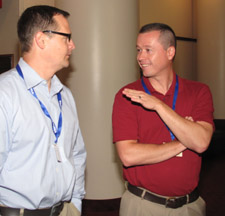Don’t promote failure; promote ‘experiments’

A shift in language is really a shift in thinking.
by. Lisa Hochgraf
Kathy Pearson, Ph.D., told attendees of CEO Institute I: Strategic Planning last week in Philadelphia that senior leaders often describe to her how they want their mid-level managers to be more risk-taking and have a higher tolerance for failure.
While these leaders’ underlying goal–to power more innovation in the organization–is noble, “not many organizations can move the needle with that language,” said Pearson, founder and president of Enterprise Learning Solutions and an adjunct professor at the University of Pennsylvania’s Wharton School, where the program was held.
Pearson acknowledged that motivating innovation in an organization is a tough nut to crack. Once she thought a company she was working with had something good going in this vein. Through its “Failure University,” managers were required to post on an internal website about initiatives that had flopped. It sounded pretty good until a executive told her, “We definitely want to have an entry, but the reality is you only want one entry. You don’t want to be the frequent flyer” on the failure website.
On the other hand, encouraging experimentation and having a policy of “no harm, no foul” when an experiment’s hypothesis proves to be false may be a way to drive out fear about trying something new, she said.
continue reading »



